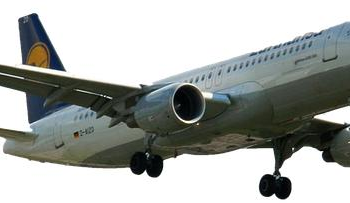France has joined a growing list of European countries-including Sweden, Poland, Portugal, Denmark, Czechia, and Switzerland-grappling with soaring hotel costs in Canada, particularly in Vancouver and Toronto. The recent temporary tax hikes imposed by these major Canadian cities have sent accommodation prices skyrocketing, affecting travelers from across Europe. This development has significant implications for tourists and business visitors alike, prompting concerns and calls for a clearer understanding of the changing landscape. Here’s what you need to know about the impact of these tax increases on European travelers heading to Canada.
France Joins European Nations Confronting Rising Hotel Prices in Canada Amid Temporary Tax Hikes
As Canada implements temporary tax increases targeting key urban centers like Vancouver and Toronto, several European countries-France, Sweden, Poland, Portugal, Denmark, Czechia, and Switzerland-are witnessing a significant surge in hotel accommodation costs. These tax adjustments, aimed at generating additional revenue during peak tourist seasons, have inadvertently placed higher financial pressure on European travelers planning visits to major Canadian cities. Both leisure and business travelers are feeling the impact, with hotel rates reportedly rising by 15% to 25% compared to last year.
The temporary tax hikes affect various categories of hotel stays, including luxury, mid-range, and budget accommodations. Here’s a quick overview of how prices have shifted across different segments in the affected cities:
| City | Hotel Category | Average Price Increase |
|---|---|---|
| Vancouver | Luxury | +22% |
| Vancouver | Mid-range | +18% |
| Toronto | Luxury | +25% |
| Toronto | Budget | +15% |
Travel experts advise consumers to book accommodations early and explore alternative lodging options such as short-term rentals or boutique hotels outside the downtown cores to mitigate the cost impact. Additionally, many European travelers are recalibrating their itineraries, opting for longer stays in less affected Canadian regions to balance budget constraints without compromising their travel experience.
Impact of Vancouver and Toronto Temporary Taxes on International Tourism and Hospitality Sectors
Recent hikes in temporary taxes levied by Vancouver and Toronto have sent ripples through the international tourism and hospitality sectors. These metropolitan hubs imposed surcharges aimed at supporting local infrastructure projects but inadvertently burdened hotel operators and travelers alike. As a result, visitors from major European markets – including France, Sweden, Poland, Portugal, Denmark, Czechia, and Switzerland – have expressed concerns over escalating accommodation costs. Industry experts warn that continued price inflation may discourage leisure and business travel, potentially reducing occupancy rates and curtailing spending within local economies.
The hospitality sectors in both cities have responded by adjusting pricing strategies and promotional offers to maintain competitiveness. However, these efforts face challenges as the extra tax burden is ultimately passed onto consumers. Key impacts observed include:
- Decline in average length of stay as tourists seek alternative, cost-effective destinations.
- Shift towards short-term rentals which currently face a different regulatory regime, thus offering more affordable lodging options.
- Increased operational costs for hotels resulting in reduced margins and slower post-pandemic recovery.
| City | Temporary Tax Increase | Estimated Impact on Hotel Rates | Primary European Source Markets Affected |
|---|---|---|---|
| Vancouver | 3% | +7-10% | France, Sweden, Denmark |
| Toronto | 4.5% | +9-12% | Poland, Portugal, Czechia, Switzerland |
Navigating Increased Accommodation Costs Tips for Travelers from Europe Visiting Canada During Tax Adjustment Period
Travelers from Europe heading to Canada, particularly to Vancouver and Toronto, are facing a sudden rise in accommodation expenses, largely attributed to temporary tax adjustments imposed by local authorities. To navigate these increased costs effectively, consider booking your stays well in advance and explore alternative lodging options like hostels, Airbnb rentals, and boutique guesthouses outside the city center. These choices not only offer cost savings but also provide a more authentic local experience away from the hustle and bustle of tourist hotspots. Additionally, leveraging travel apps and discount platforms can help identify deals and last-minute offers that are often missed during initial planning stages.
Budget-conscious travelers should also be flexible with their travel dates, as weekdays often feature significantly lower rates than weekends. For longer stays, negotiating directly with property owners or opting for monthly rentals can reduce per-night costs substantially. Below is a quick comparison highlighting the impact of the tax surge on average nightly rates across popular European markets visiting Canada:
| Country of Origin | Average Pre-Tax Nightly Rate (CAD) | Estimated Post-Tax Nightly Rate (CAD) | Suggested Savings Strategy |
|---|---|---|---|
| France | 180 | 216 | Book mid-week & use Airbnb |
| Sweden | 175 | 210 | Long-term rentals & early booking |
| Poland | 160 | 192 | Guesthouses & flexible dates |
| Portugal | 170 | 204 | Hostels & discount apps |
In Conclusion
As France joins Sweden, Poland, Portugal, Denmark, Czechia, and Switzerland in grappling with soaring hotel costs in Canada, travelers from across Europe are feeling the pinch brought on by recent temporary tax hikes in Vancouver and Toronto. These measures, aimed at addressing local economic challenges, have inadvertently created significant disruptions for international visitors planning their Canadian itineraries. Moving forward, both tourists and industry stakeholders will need to stay informed on evolving policies to navigate the changing landscape of travel expenses. As the situation develops, continued monitoring will be essential to understand the broader impacts on Canada’s hospitality sector and international travel patterns.
















